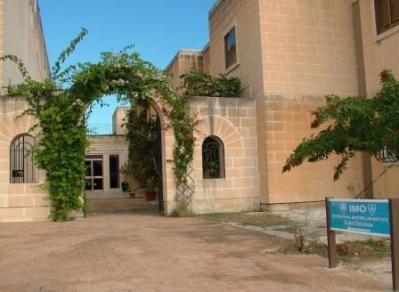
The IMO International Maritime Law Institute is a world recognized centre for the training of law graduates in international maritime law. Special emphasis is given to international regulations adopted by the International Maritime Organization.
The Institute provides suitably qualified candidates, particularly from developing countries, with high-level facilities for advanced training, study and research in international maritime law. It also focuses on legislative drafting techniques designed to assist participants in the process of incorporating international treaty rules into domestic law.
One of the essential requirements for operating a shipping or maritime programme is the ability to implement international conventions and instruments adopted by IMO and other relevant international organizations. For this purpose, States need to have appropriate legal infrastructure which incorporates the provisions of the respective conventions and instruments into national law and which has well-established procedures for applying and enforcing the requirements of the applicable law in all relevant situations.
The appropriate legal infrastructure in each State should consist of an up-to-date legislative regime, with a suitable machinery for the review, revision and modification of that legislation, to keep it in line with changes in international maritime law and the latest developments in marine technology and shipping practices. For this purpose the State, as well as the shipping industry, requires the services of well-trained legal personnel with specialization in maritime and shipping law. There is also need for persons with expertise and skills in the preparation and drafting of legislative instruments, including the preparation of primary legislation (codes, statutes, etc.) as well as the necessary subsidiary legislation (regulations and rules) for implementing the principal instruments at State and industry levels.
Although many developing countries have reasonable numbers of legally trained persons, they do not always have the required numbers of persons with the necessary specialization or expertise in maritime law. To meet these needs, IMO has included, as a vital part of its technical co-operation programme, projects for the provision of technical advice and assistance in maritime law and legislation. Under this programme, advice and assistance have been provided on request to States on the planning and preparation for new or updated maritime legislation. Such advice and assistance have been provided by IMO''s interregional advisers or, where appropriate, by short-term consultants or experts recruited in consultation with the Government concerned.
Interregional advisers prepare their recommendations after one or several short visits to the countries, whereas consultants and experts are recruited for relatively longer periods, usually of three to six months'' duration.
While advisory services along these lines have been useful to many States, it is generally recognized that such assistance can only be of limited benefit and cannot provide an effective long-term answer to the needs of these countries. What each developing country needs is not only a good maritime law regime, but also a reasonable cadre of national legal personnel who are available to oversee, on a systematic basis, the implementation of existing law, to review and evaluate the provisions and arrangements for their implementation, to advise on the need for new or revised laws and regulations and, as necessary, to prepare suitable texts for consideration and adoption by the relevant legislative bodies. This is a crucial role, which must necessarily be discharged on a continuous basis if it is to be effectively discharged. It is therefore a need which cannot be met by occasional visits of advisers, or even by experts who can only stay for limited periods.